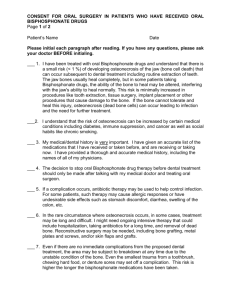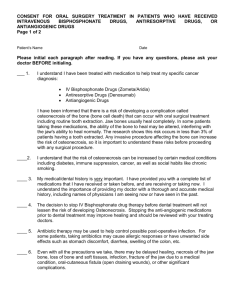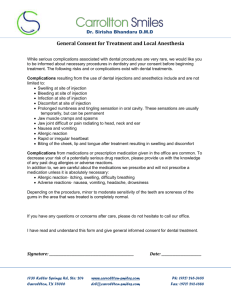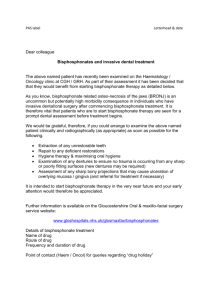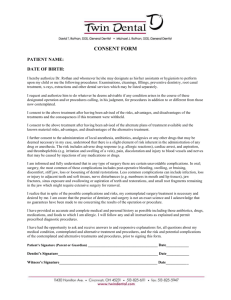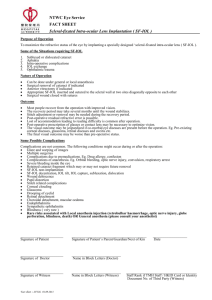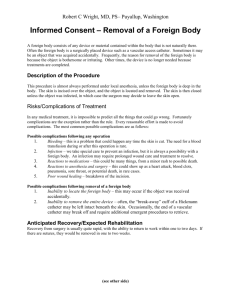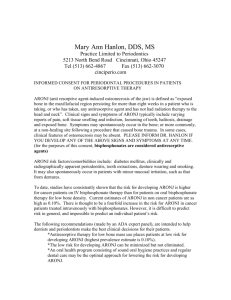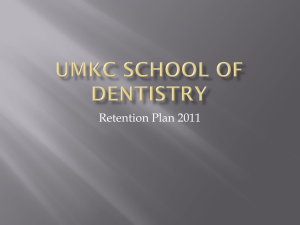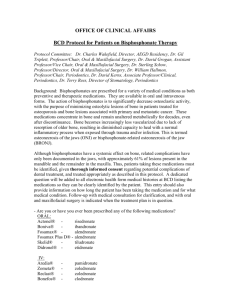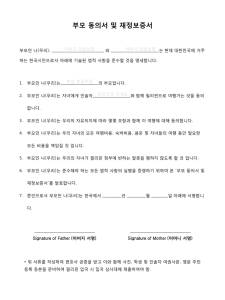Consent for Treatment for Patients Taking
advertisement
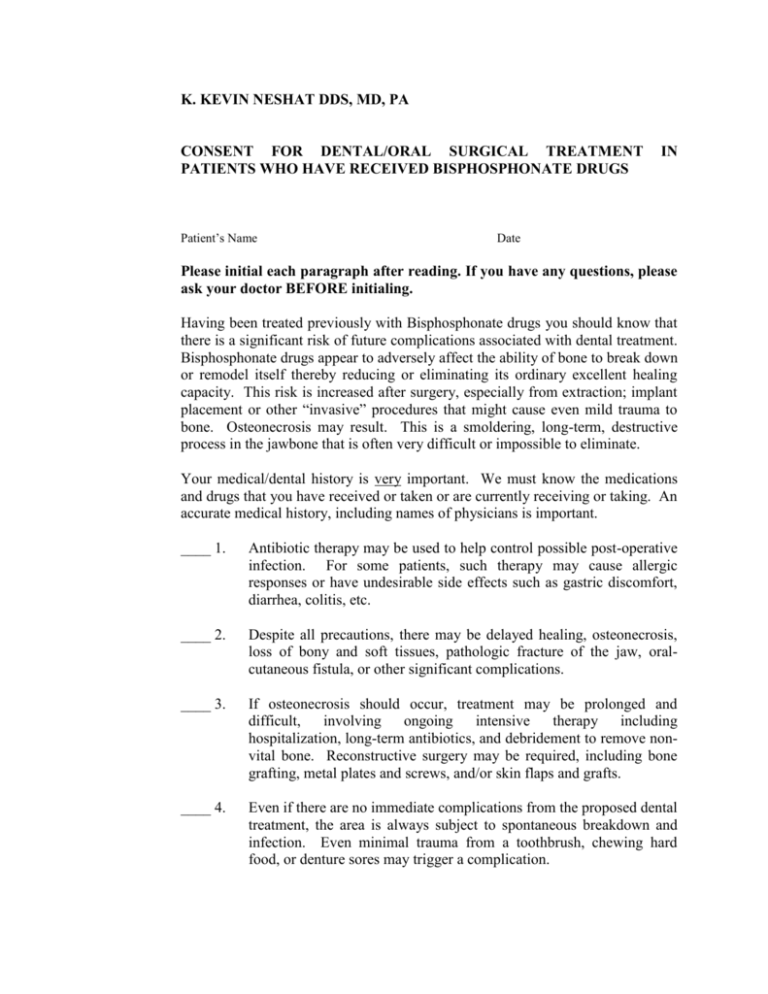
K. KEVIN NESHAT DDS, MD, PA CONSENT FOR DENTAL/ORAL SURGICAL TREATMENT PATIENTS WHO HAVE RECEIVED BISPHOSPHONATE DRUGS Patient’s Name IN Date Please initial each paragraph after reading. If you have any questions, please ask your doctor BEFORE initialing. Having been treated previously with Bisphosphonate drugs you should know that there is a significant risk of future complications associated with dental treatment. Bisphosphonate drugs appear to adversely affect the ability of bone to break down or remodel itself thereby reducing or eliminating its ordinary excellent healing capacity. This risk is increased after surgery, especially from extraction; implant placement or other “invasive” procedures that might cause even mild trauma to bone. Osteonecrosis may result. This is a smoldering, long-term, destructive process in the jawbone that is often very difficult or impossible to eliminate. Your medical/dental history is very important. We must know the medications and drugs that you have received or taken or are currently receiving or taking. An accurate medical history, including names of physicians is important. ____ 1. Antibiotic therapy may be used to help control possible post-operative infection. For some patients, such therapy may cause allergic responses or have undesirable side effects such as gastric discomfort, diarrhea, colitis, etc. ____ 2. Despite all precautions, there may be delayed healing, osteonecrosis, loss of bony and soft tissues, pathologic fracture of the jaw, oralcutaneous fistula, or other significant complications. ____ 3. If osteonecrosis should occur, treatment may be prolonged and difficult, involving ongoing intensive therapy including hospitalization, long-term antibiotics, and debridement to remove nonvital bone. Reconstructive surgery may be required, including bone grafting, metal plates and screws, and/or skin flaps and grafts. ____ 4. Even if there are no immediate complications from the proposed dental treatment, the area is always subject to spontaneous breakdown and infection. Even minimal trauma from a toothbrush, chewing hard food, or denture sores may trigger a complication. CONSENT FOR DENTAL/ORAL SURGICAL TREATMENT PATIENTS WHO HAVE RECEIVED BISPHOSPHONATE DRUGS Page 2 of 2 IN ____ 5. Long-term post-operative monitoring may be required and cooperation in keeping scheduled appointments is important. Regular and frequent dental check-ups with your dentist are important to monitor and attempt to prevent breakdown in your oral health. ____ 6. I have read the above paragraphs and understand the possible risks of undergoing my planned treatment. I understand and agree to the following treatment plan: _________________________________________________________ _________________________________________________________ _________________________________________________________ ____ 7. I understand the importance of my health history and affirm that I have given any and all information that may impact my care. I understand that failure to give true health information may adversely affect my care and lead to unwanted complications. ____ 8. I realize that, despite all precautions that may be taken to avoid complications; there can be no guarantee as to the result of the proposed treatment. CONSENT I certify that I speak, read and write English and have read and fully understand this consent for surgery, have had my questions answered and that all blanks were filled in prior to my initials or signature. Patient’s (or Legal Guardian’s) Signature Date Doctor’s Signature Date Witness’ Signature Date
